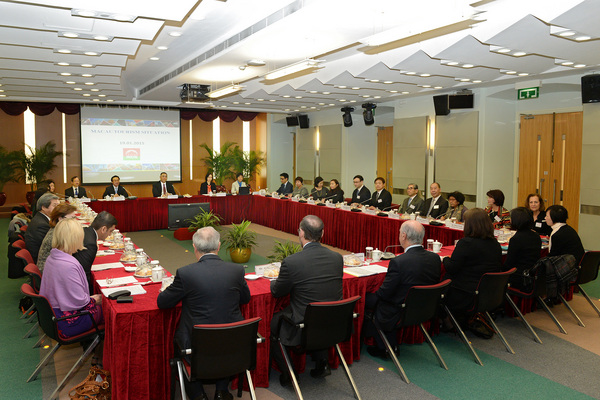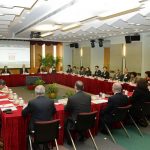
The Government would spare no effort in striving to find new sources for tourists, stabilise the growth of international visitors and make them stay longer, said the Chief Executive, Mr Chui Sai On. In the annual meeting at Government Headquarters with marketing representatives of the Macao Government Tourist Office on 19 January to review the tourism situations and plan ahead for the coming year, Mr Chui said the strategies were to enhance Macao's international positioning, promote tourism products in various media networks and introduce special tours to attract different markets. The Government would also take effective measures to promote quality and integrated tourism, and strengthen regional co-operation in developing multi-destination tourism routes to fulfil its position as a world centre for tourism and leisure, and a commercial and trade co-operation service platform between China and the Portuguese-speaking countries. Last year saw an increase in the number of visitors despite the gaming sector having experienced a downward adjustment, he said, reflecting a successful beginning in the development of non-gaming attractions. Officials who also attended the meeting included Secretary for Social Affairs and Culture, Mr Tam Chon Weng, and Chief of his office, Mr Lai Ieng Kit; Chief-of-Office of the Chief Executive's Office, Ms O Lam; Director of the Macao Government Tourist Office, Ms Maria Helena de Senna Fernandes, and Deputy Director Ms Tse Heng Sai and Mr Cheng Wai Tong, together with other 17 market representatives stationed aboard.


